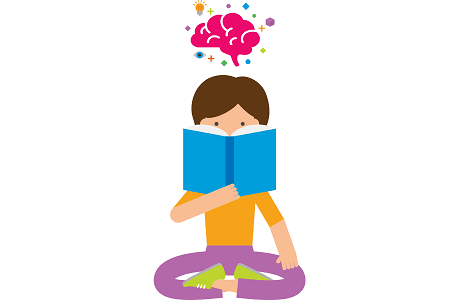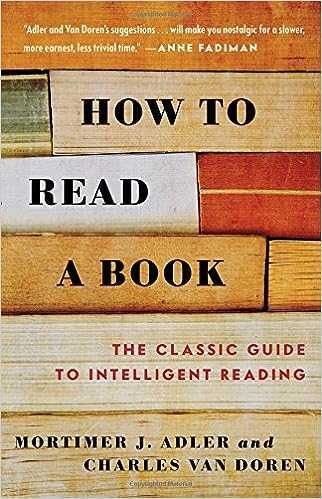Elementary Reading
The most basic level of reading is called elementary reading. As you might guess, this is the sort of reading that we learn in elementary school. Although we learn the basics of reading in elementary school, this is the most fundamental sort of reading and sometimes we have to add to our skill in it throughout life. This stage of reading involves recognizing letters, understanding grammar, and knowing the meanings of words.
67
957 reads
CURATED FROM
IDEAS CURATED BY
I think about #AI, #AIEthics, #Philosophy, #Psychology, and #Art Let’s philosophize!
Hi Deepstash. I want to see how this app works, so here are the levels of reading I learned about in Mortimer Adler’s book, ‘How to Read a Book’.
“
The idea is part of this collection:
Learn more about education with this collection
How to synthesize information from multiple books
How to analyze a book
How to set reading goals
Related collections
Similar ideas to Elementary Reading
The Processes Of The Brain While Reading
Simplifying, two basic processes happen when you read: There is decoding, or translating the strings of letters into words with meaning. And then there is language processing, or comprehension.
Decoding is specific to reading but by about late elementary school, decoding becom...
Master the Art of Reading
To master the art of reading and become an expert reader, you must begin thinking about reading beyond the basics of what you learned in school, and instead, start to see it for the extraordinarily complex, multi-dimensional skill that it is.
There’s no bet...
Understand Why You’re Reading
Understanding the purpose of your reading is fundamental to gaining the most from any book. Knowing why you’re reading allows you to tailor your approach, ensuring you can engage deeply with the content.
- Clarify your objectives before starting a book...
Read & Learn
20x Faster
without
deepstash
with
deepstash
with
deepstash
Personalized microlearning
—
100+ Learning Journeys
—
Access to 200,000+ ideas
—
Access to the mobile app
—
Unlimited idea saving
—
—
Unlimited history
—
—
Unlimited listening to ideas
—
—
Downloading & offline access
—
—
Supercharge your mind with one idea per day
Enter your email and spend 1 minute every day to learn something new.
I agree to receive email updates



